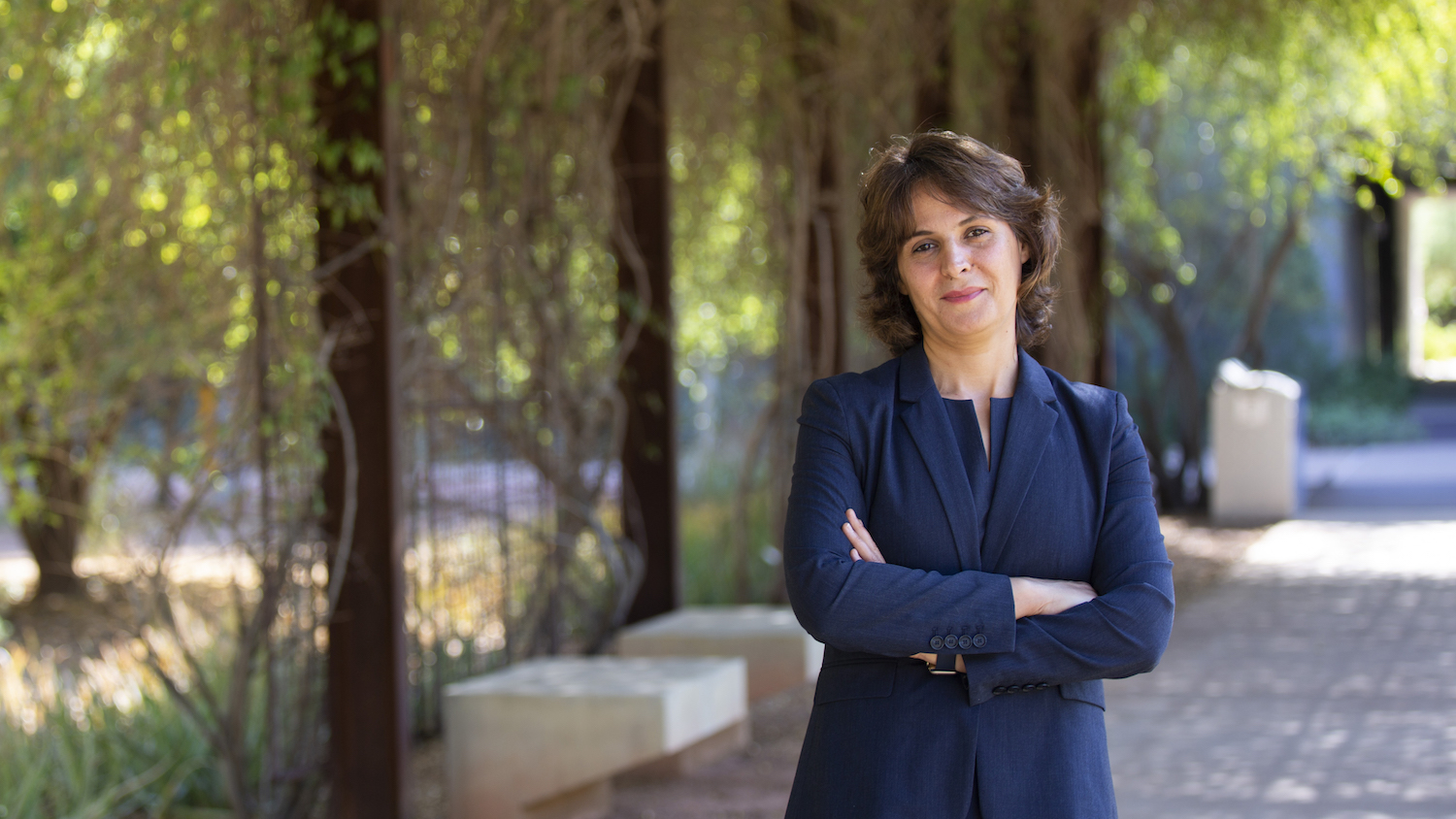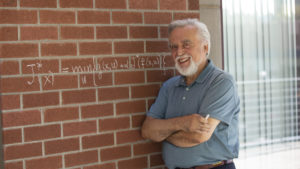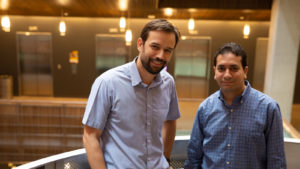Ladani to keep The Polytechnic School on path to success
New director of The Polytechnic School looks forward to shaping the future of education and research at ASU

“Analytical and goal-oriented” are the dominant character traits Leila Ladani says best describe her.
She recalls exhibiting those proclivities at an early age when she was drawn to math and science in her first years of school — and in later years when she chose to pursue an engineering career.
From such personal characteristics sprung a “passion for learning and love for education,” Ladani says, that have led to success in her career as a scientist, researcher and leader in her profession.
More recently, that zeal guided Ladani’s decision to accept an offer to become the director of The Polytechnic School, one of the six schools in the Ira A. Fulton Schools of Engineering at Arizona State University. The Polytechnic School is home to seven academic programs, more than 5,500 students and 200 faculty and staff members.
In her analysis, ASU is taking academics and research in the directions they need to go to help the world overcome its numerous and varied challenges.
“I chose ASU because of its culture, which promotes innovation and access to education for all,” Professor Ladani says. “This is a place where change and progress is expected and encouraged.”
Especially enticing to Ladani is the progress being made toward fulfilling ASU President Michael Crow’s vision for the university.
“ASU is a world-class research institution that is also providing a high-quality education and research opportunities to a wide spectrum of students from many different backgrounds,” she says. “I find that inspiring.”
Ladani sees another encouraging sign in the university’s break from traditionally strict separation of academic disciplines and research endeavors. That multidisciplinary approach to both education and research is in ascendance at The Polytechnic School, she says.
“There are engineers working with psychologists to come up with ways for soldiers to achieve higher performance on the battlefield,” she says. “That is only one example of research collaborations that have the potential to be transformative for society in the near future.”
Ladani points also to engineers working with physicians to develop self-sufficient mobile clinics to provide medical care during disaster response efforts and projects to educate future leaders in the design and development of citizen-centered smart cities.
“These are ways we are going to impact the world,” she says. “It is truly inspiring.”
Fulfilling research and teaching aspirations are high priorities
For her part, Ladani will be continuing to make her already notable mark on education and research in the mechanics of solid materials and manufacturing. Her research focuses on developing new, more efficient manufacturing methods and materials — specifically in the fast-emerging field of additive manufacturing based on using applications of 3D printing in a “bottom-up approach” to making new materials, structures and components.
Her work has earned support from NASA, the National Science Foundation, the research offices of the U.S. Air Force and Navy, and from industry, including major tech companies such as Honeywell and Pratt & Whitney.
She has authored more than 120 refereed research manuscripts and guided numerous students through studies and research to earn graduate degrees.
Ladani is particularly excited about the opportunity to expand manufacturing at ASU. The Polytechnic School’s Innovation Hub is equipped to develop solutions that promise significant additive manufacturing advances, she says.
Beyond her lab work, Ladani is looking forward to her time in the classroom.
“I love teaching and interacting with students,” she says. “I take pride and joy in seeing my students learn and flourish in whatever area they’re learning about.”
Ladani’s students should expect to be challenged to do more than listen to lectures and take notes.
“Be prepared to engage in class and to answer questions,” she says. “I will ask a lot of questions.”
Students will get the benefit of the experiences of a teacher with a bachelor’s degree and two master’s degrees in mechanical engineering — one of them from the highly ranked engineering program at the University of Maryland, College Park, from which she also earned a doctoral degree in the field.
Professional accomplishments raise expectations of progress
Her credentials are also bolstered by dozens of awards, honors and distinctions bestowed on her over the past two decades that recognize her contributions to education, research advances, scholarship and leadership in her field.
The stature Ladani has attained is indicated by more than 30 invitations in recent years to give talks to her professional peers. Most recently, in July, she gave a keynote speech about digital twin technology at an international symposium in Melbourne, Australia, on new computational techniques being used in additive manufacturing.
She was also among the invited participants at the National Academy of Engineering’s Frontiers of Engineering conference.
Ladani has won the American Society of Mechanical Engineers Electronic and Photonic Packaging Division’s Women in Engineering Award. She was also a finalist for the Connecticut Technology Council’s Women of Innovation award in the Academic Innovation and Leadership category during her time as faculty member at the University of Connecticut.
Most recently Ladani was on the faculty of the University of Texas at Arlington, where she directed the Manufacturing Innovation and Catalysis Center.
She currently is the editor of a prominent research publication in her field, the Journal of Materials Science and Engineering.
“We’re excited to have Leila Ladani at the helm of The Polytechnic School,” says Professor Kyle Squires, dean of the Fulton Schools. “Her experiences, accomplishments, leadership and passion for student success and faculty excellence will be vital to advancing the school and ensuring its future successes.”
Ladani “is off to a fast start and is bringing great energy to the director’s role,” says Fulton Schools Professor Ann McKenna, who led The Polytechnic School as director for the past five years and is now the Fulton Schools vice dean of strategic advancement. “With her enthusiasm, drive and background, the school is going to continue to achieve great things.”
When taking time away from the demands of her new job, Ladani will pursue her interests of hiking, swimming, reading and traveling.
Add to that some special ways Ladani says she loves to spend her time: doing science experiments with her 8-year-old daughter, Susan, and guiding her son, Sam, on his journey toward a degree in biomedical engineering.
Joe Kullman
Science writer, Ira A. Fulton Schools of Engineering
(480) 965-8122 | [email protected]


